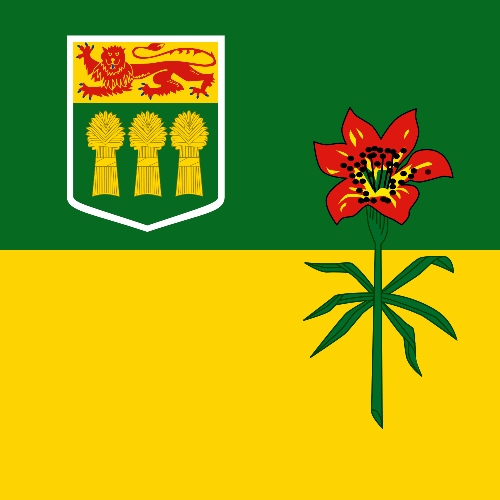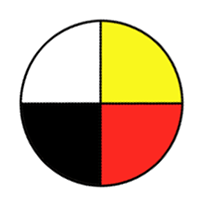English Language Arts 9
Compose and Create
Students will develop their abilities to speak, write, and use other forms of representation to explore and present thoughts, feelings, and experiences in a variety of forms for a variety of purposes and audiences.
CC
Outcomes
|
|
| Create various visual, multimedia, oral, and written texts that explore identity (e.g., The Search for Self), social responsibility (e.g., Our Shared Narratives), and efficacy (e.g., Doing the Right Thing). |
|
|
| Create various visual, multimedia, oral, and written texts that explore identity (e.g., Exploring Loyalty, Love, and Relationships), social responsibility (e.g., Equal Opportunity), and efficacy (e.g., Surviving and Conquering). |
|
|
| Create and present an individual researched inquiry project related to a topic, theme, or issue studied in English language arts. |
|
|
| Create and present an individual researched inquiry project related to a topic, theme, or issue studied in English language arts. |
|
|
| Select and use appropriate strategies to communicate meaning before (e.g., considering and valuing own observations, experiences, ideas, and opinions as sources for ideas), during (e.g., shaping and reshaping drafts with audience and purpose in mind), and after (e.g., ensuring that all parts support the main idea or thesis) speaking, writing, and other representing activities. |
|
|
| Select and use appropriate strategies to communicate meaning before (e.g., considering and valuing own observations, experiences, ideas, and opinions as sources for ideas), during (e.g., shaping and reshaping drafts with audience and purpose in mind), and after (e.g., ensuring that all parts support the main idea or thesis) speaking, writing, and other representing activities. |
|
|
| Use pragmatic (e.g., inclusive language that supports people across cultures, genders, ages, and abilities), textual (e.g., strong leads, coherent body, and effective endings), syntactic (e.g., subordination to show more precisely the relationships between ideas), semantic/lexical/morphological (e.g., both the denotative and connotative meaning of words), graphophonic (e.g., knowledge of spelling patterns and rules to identify, analyze, and correct spelling errors), and other cues (e.g., combine print and visuals to enhance presentations) to construct and to communicate meaning. |
|
|
| Use pragmatic (e.g., inclusive language that supports people across cultures, genders, ages, and abilities), textual (e.g., strong leads, coherent body, and effective endings), syntactic (e.g., subordination to show more precisely the relationships between ideas), semantic/lexical/morphological (e.g., both the denotative and connotative meaning of words), graphophonic (e.g., knowledge of spelling patterns and rules to identify, analyze, and correct spelling errors), and other cues (e.g., combine print and visuals to enhance presentations) to construct and to communicate meaning. |
|
|
| Create and present a variety of visual and multimedia presentations to best represent message for an intended audience and purpose. |
|
|
| Create and present a variety of visual and multimedia presentations including addressing various audiences for one proposal. |
|
|
| Use oral language to interact purposefully, confidently, and appropriately in a variety of situations including participating in one-to-one, small group, and large group discussions (e.g., prompting and supporting others, solving problems, resolving conflicts, building consensus, articulating and explaining personal viewpoint, discussing preferences, speaking to extend current understanding, and celebrating special events and accomplishments). |
|
|
| Use oral language to interact purposefully, confidently, and appropriately in a variety of situations including participating in one-to-one, small group, and large group discussions (e.g., prompting and supporting others, solving problems, resolving conflicts, building consensus, articulating and explaining personal viewpoint, discussing preferences, speaking to extend current understanding, and celebrating special events and accomplishments). |
|
|
| Use oral language intentionally to express a range of information and ideas in formal and informal situations including dramatic readings of poems, monologues, scenes from plays, and stories and presenting reasoned arguments of opposing viewpoints. |
|
|
| Use oral language intentionally to express a range of information and ideas in formal and informal situations including dramatic readings of poems, monologues, scenes from plays, and stories and presenting reasoned arguments of opposing viewpoints. |
|
|
| Write to describe (a profile of a character), to narrate (a narrative essay), to explain and inform (a researched report), and to persuade (a review). |
|
|
| Write to describe (a description of a scene), to narrate (a personal essay), to explain and inform (a multi-paragraph letter), and to persuade (a letter to the editor). |
|
|
| Experiment with a variety of text forms (e.g., debates, meetings, presentations to unfamiliar audiences, poetry, précis, short script, advice column, video documentary, comic strip) and techniques (e.g., tone, persona, point of view, imagery, dialogue, figurative language). |
|
|
| Experiment with a variety of text forms (e.g., debates, meetings, presentations to unfamiliar audiences, poetry, précis, short script, advice column, video documentary, comic strip) and techniques (e.g., tone, persona, point of view, imagery, dialogue, figurative language). |
Loading...


R103748
Opportunities to Address Substance Misuse in Curriculum
This document outlines curricular opportunities to address substance misuse in various subject areas and grades. Suggested curriculum outcomes are identified and, if applicable, supporting indicators are noted.
Links :
Download
Media and Formats :
Document
Price :
Free



Record posted/updated:
April 18, 2019

R102384
Conflicts and Choices - Doing the Right Thing: A Model Thematic Unit for Grade 9
This is a model thematic unit for Grade 9 English Language Arts. It focuses on doing the right thing when faced with conflict, challenge, or an issue and addresses a number of outcomes from the Comprehend and Respond (CR), Compose and Create (CC) and Assess and Reflect (AR) goals.
Links :
Click here
Media and Formats :
Document
Price :
Free




Record posted/updated:
January 3, 2019

R102399
Indigenous and Norse Narratives: A Model Genre Unit for Grade 9
This is a model genre unit for Grade 9 English Language Arts. It focuses on how the Indigenous and Norse narratives contain the beliefs and values of many peoples and are important foundational stories for Canadians. It addresses a number of outcomes from the Comprehend and Respond (CR), Compose and Create (CC), Assess and Reflect (AR) goals and invites students to explore and inquire about the English language.
Links :
Click here
Media and Formats :
Document
Price :
Free




Record posted/updated:
January 3, 2019

R102392
Our Shared Linguistic and Cultural Roots: A Model Inquiry Unit for Grade 9
This is a model inquiry unit for Grade 9 English Language Arts. It focuses on the roots of the English language and its important place in the world family of languages. It addresses a number of outcomes from the Comprehend and Respond (CR), Compose and Create (CC), Assess and Reflect (AR) goals and invites students to explore and inquire about the English language.
Links :
Click here
Media and Formats :
Document
Price :
Free




Record posted/updated:
January 3, 2019

R102401
Exploring Loyalty, Love, and Relationships: A Model Thematic Unit for Grade 9
This is a model thematic unit for Grade 9 English Language Arts. It focuses on the role that love and loyalty play in relationships with friends, family, and special others. It addresses a number of outcomes from the Comprehend and Respond (CR), Compose and Create (CC), Assess and Reflect (AR) goals and invites students to explore and inquire about the English language.
Links :
Click here
Media and Formats :
Document
Price :
Free




Record posted/updated:
January 3, 2019

R104501
Ask Artists Series
Ask Artists is an inquiry-based learning program for teachers and students. Each episode is an in-depth and intimate journey with a Saskatchewan artist. Artists share candid moments and show students that artists are real people with skills, successes, failures and dreams.
- Ask Artists Episode 5: “Out Loud” Songwriting (Part 1: Meet The Artist) - Lancelot Knight
- Ask Artists Episode 5: “Out Loud” Songwriting (Part 2: About Songwriting) - Lancelot Knight
- Ask Artists Episode 5: “Out Loud” Songwriting (Part 3: Writing a Song) - Lancelot Knight
- Ask Artists Episode 5: “Out Loud” Songwriting (Part 4: Performance - Big Fish) - Lancelot Knight
Links :
Media and Formats :
Video
Price :
Free




Record posted/updated:
December 2, 2021

R101663
Stories of Courage: Saskatchewan Second World War Veterans Remember
This series of eight videos presents the personal stories of 17 Saskatchewan residents who served during the World War II.
- Aboriginal War Experiences. Episode 5
- Commemoration. Episode 8
- HMCS Regina. Episode 3
- Price of Freedom. Episode 2
- Prisoners of War. Episode 4
- Soldiers Return Home. Episode 7
- Supporting the Troops. Episode 6
- Training and Preparing for War. Episode 1
Price :
Free




Record posted/updated:
January 6, 2026
